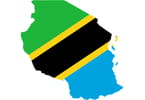LONDON, England (eTN) – The President of Estonia, Toomas Hendrik Ilves, learned how to program when he was thirteen years old. In a keynote address at the Legatum Institute in London, President Ilves described how, under his leadership, Estonia – a small former Soviet satellite state – became a world leader in information technology. Introduced as one of the bits of glue which holds Europe together, the Estonian leader shared his thoughts on the importance of information and communications technology (ICT) as a key driver of prosperity and his ambition to pass on the benefits of Estonia’s experience to Europe and the rest of the world.
President Ilves reflected on how new technology has transformed the world and how the changes taking place in societies today are so fundamental that, in comparison, the industrial revolution in the UK will seem like a minor event in history. Young people today cannot believe that just twenty years ago there were no smart phones, tablets and similar gadgets.
Estonia has the highest living standard among the 15 former Soviet republics. The spread and use of ICT has played a crucial role in Estonia’s development. Today, nearly 80 percent of Estonians are connected to the Internet. For the past 10 years, free Wi-Fi has been available nationwide. Estonians pay their taxes online, do their banking online and, increasingly in recent years, even vote online. Every Estonian over the age of 15 also has a key card with a chip which allows Estonians to access a range of services – from filling prescriptions to riding on a bus, and from accessing their medical records to reviewing tax data.
The President explained that when Estonia left the Soviet Union in 1991, it was underdeveloped and its economy was in a dire state. The country has invested more than anyone else in IT because one area where it was on a level playing field was in IT. “I pushed to get all Estonian schools online. We will let computers do all the things that they can do. We have all sorts of cyber-security standards. Skype is an Estonian invention. We’re one of the countries people talk to about becoming Internetted.”
The President went on to say that we are now at a stage where the world needs to think about the cyber highway and overpasses to go with what we have. There are new threats, changes and concepts of privacy. Liberal democracy has been a key issue and guarantees of security are paramount.
“You need to have a trusted, secure identity. This is the basis of any contractual agreement. You can then develop a society when contractual arrangements can be done online.” President Ilves said 140 million contracts in Estonia are concluded online. It can take as little as 10 seconds to sign off on a contract. “The other side is the bad stuff that happens when you do not have security…to surmount this you need to have an identity, need to know who is at the door. It is up to the government to provide security.” He admitted that his inner libertarian didn’t like this but he believed it was the government’s role to enforce traffic regulations on the digital highway.
“The way our system works in Estonia is that we have private-public partnership which protects identity. Everyone has a card which provides a highly secure system guaranteeing your identity. At that point the world opens out to you, because you have a secure identity… another crucial law is that you are the owner of your own data, you have the right to see whoever is using your data.” He said the government never has to ask you for a piece of paper more than once. He declared with pride that in Estonia it only takes 18 minutes to register a company, whereas in Italy it can take 18 months.
The President gave examples of how much easier it is for customers to connect with banks and gain instant access to their health and other records. Large numbers of pensioners from Finland travel to Estonia. Under an arrangement between the two countries if a Finnish visitor to Estonia loses his or her prescription details can be found instantly online. The idea is to transfer this accessibility to other parts of Europe to countries with the technical and other sophistication to deal with this. He noted the resistance in English-speaking countries like the UK, Canada, US, Australia and New Zealand to the concept of an ID card. Despite these reservations President Ilves seems to have made an impact in his talks with British government ministers and officials. The Speaker of the House of Commons, John Bercow, has said Britain should learn from Estonia, the first nation to use Internet voting.
President Ilves referred to fears of Big Brother and observed that in the digital era traditional ideas of privacy were flying out of the window. What we have now, he joked, was Little Sister who knows everything about you and tells everyone! He said what we fail to realize is that with our prolific use of credit cards and swipe cards we have all been willingly participating in putting up all our data everywhere. He said people were naive not to understand that apps downloaded free were designed so that the data could be monetized.
He said the fundamental issue we face today is trust, especially after Wikileaks and the revelations by Edward Snowden, the loss of trust that now taking place is profound. “We need to come up with a new understanding of issues, otherwise you might as well throw out your IPads, smart phones and computers.” He argues that we are all too obsessed with the confidentiality side of being in an inter-connected world. He makes a distinction between privacy and integrity. He believes that as our societies everywhere are becoming more and more controlled by computers and we are becoming increasingly vulnerable priority needs to be given to protecting our identity on the Internet. In his view, ultimately, we have to trust the government to guarantee this security – he sees this as a contract between the citizen and the state.
The Estonian President’s vision of how the widespread movement of information can benefit economic activity and influence the global economy is compelling. However, this relationship of trust between a citizen and the government can exist in an enlightened democracy like Estonia. The big question is whether this trust can be transferred to other countries where governments, or their policies, may change, or where authoritarian governments do not share the same liberal standards and values.
WHAT TO TAKE AWAY FROM THIS ARTICLE:
- Introduced as one of the bits of glue which holds Europe together, the Estonian leader shared his thoughts on the importance of information and communications technology (ICT) as a key driver of prosperity and his ambition to pass on the benefits of Estonia's experience to Europe and the rest of the world.
- Every Estonian over the age of 15 also has a key card with a chip which allows Estonians to access a range of services – from filling prescriptions to riding on a bus, and from accessing their medical records to reviewing tax data.
- President Ilves reflected on how new technology has transformed the world and how the changes taking place in societies today are so fundamental that, in comparison, the industrial revolution in the UK will seem like a minor event in history.






















